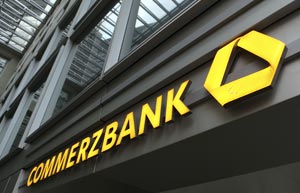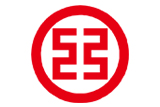Inter-bank lending better option for funding
Updated: 2012-05-28 08:00
By Hong Liang (China Daily)
|
|||||||||||
Much has been discussed and written about the financial reform experiment taking place in Wenzhou, in coastal Zhejiang province, where many private-sector manufacturing enterprises are known to be suffering from debilitating cash-flow problems. The lessons learned from this trial endeavor, which is aimed at facilitating the flow of capital to help fund the growth of the many thousands of small to medium-sized companies in all sectors of the economy, are expected to be applied nationwide in the coming years.
While supporting the government's efforts, some economists and financial experts have put forward the opinion that meaningful financial reform can only be achieved by the liberalization of interest rates. Therein lies a dilemma.
At present, interest rates are set by the central bank under the auspices of the Ministry of Finance. This arrangement, if it remains unchanged, would effectively block any new entrants into the financial market under the proposed reform program from competing for deposits with the large banks with their well-established deposit gathering capabilities.
Thus hobbled, these newly established lenders would find it hard, if not impossible, to find funds to loan to companies. For this reason, many economists have argued that interest rates must be freed up to give the reform initiatives a chance to work.
But this argument, logical though it sounds, ignores the systemic risks that can be generated by unbridled competition for deposits among the less-capitalized and relatively inexperienced finance companies. And gaining recognition by the government under the reform program may give the management of a new finance company and its depositors the impression that the authorities are prepared to bail it out in case of a default. This could, in turn, encourage the management of the new finance companies to take excessive risks in business expansion and profit maximization.
This moral hazard doesn't exist in the underground banking system that has thrived for decades especially in the booming coastal regions.
The high interest rates offered by the underground lenders to solicit deposits and the often-exorbitant lending rates they charge borrowers are a reflection of the inherent risks in this market that operates outside the law.
A string of high-profile defaults in the past several months by underground lenders, many of them in Wenzhou, has laid bare the inadequacies of the financial system that has for so long ignored the funding need of private sector enterprises. Reform is clearly necessary, but interest rates cannot be freed up, not at present.
When Hong Kong initiated its own version of financial reform in the late 1970s, the then government formalized and tightened the interest rate setting mechanism rather than abolishing it.
To do that, it introduced a law requiring all banks and finance companies to join and observe the rules of the Association of Banks, which was primarily a cartel, dominated by HSBC, that set deposit rates.
Even at that time, Hong Kong already had a well-established and highly efficient inter-bank lending market which served effectively as a major source of funding to the smaller lenders as well as the foreign banks that were beginning to flood into Hong Kong. The rates at which banks lend to each other are the accepted benchmark for the true cost of money at any given time.
Liberalizing interest rates at the initial stages of reform in the Wenzhou experiment would be nothing more than a formalization of the underground banking system, giving an official seal of approval to lenders to carry on doing what they were doing before.
A better alternative would be to establish an inter-bank lending market, at the initiative and under the supervision of the government, to provide a reliable source of funding to smaller lenders while shielding depositors from direct exposure to the risks of reform.
Shanghai is the most logical choice for the clearing facilities, and an efficient inter-bank market would greatly boost the city's status as the nation's premier financial center.
(China Daily 05/28/2012 page8)









